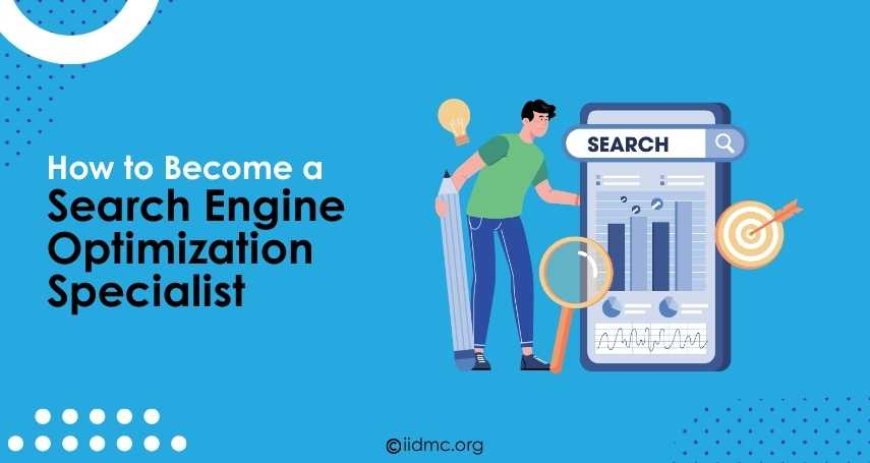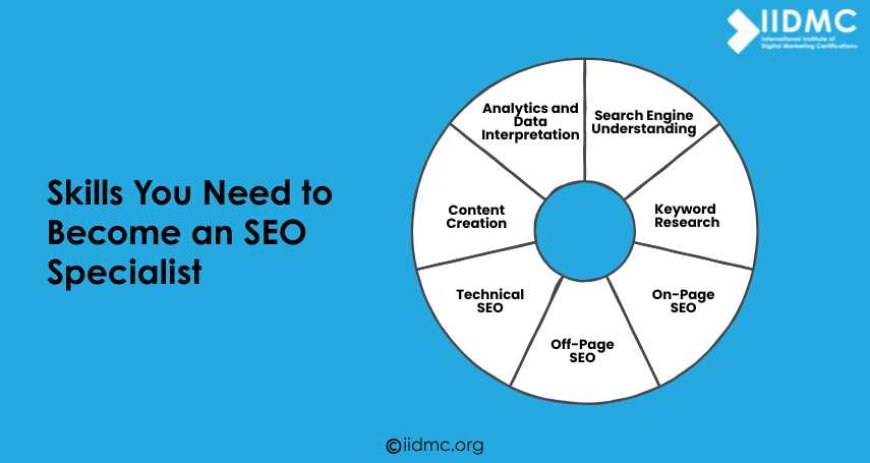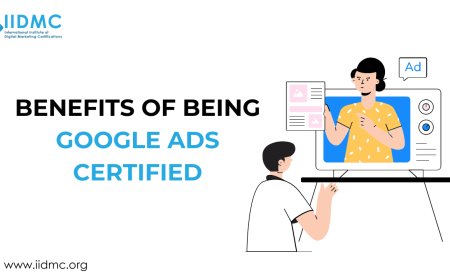How to Become a Search Engine Optimization Specialist
Learn how to become a search engine optimization (SEO) specialist with simple steps, key skills, and practical tips to start your SEO career.

One of the most effective strategies in digital marketing is search engine optimization, or SEO, which is the core of my daily work. The objective of practically every company I've worked with is to increase organic traffic and rank higher on Google.
I've seen how successful SEO can change a brand's online visibility through practical experience and continuous learning. Even if you have no previous experience, I'll walk you through the exact steps I took to become an SEO professional if you're considering pursuing a career in this sector.
What is an SEO Specialist?
The goal of an SEO professional is to increase a website's exposure on search engines such as Google, Bing, and Yahoo. By improving the website and its content, the main goal is to increase organic traffic.
To help websites rank higher in search results, SEO experts use a lot of strategies, including technical improvements, link building, content creation, and keyword analysis.
Why Become an SEO Specialist?
SEO is a growing field with strong job demand. Here are a few reasons why you might want to consider it:
-
High demand: SEO is essential for practically all internet businesses.
-
Opportunities for freelance jobs: You can start your own SEO company or operate as a freelancer.
-
Remote work: A lot of SEO positions allow for remote work.
-
Good salary: SEO experts get paid competitively.
-
Continuous learning: The work stays interesting because SEO is constantly evolving.
Skills You Need to Become an SEO Specialist
You don’t need a college degree to become an SEO expert, but you do need the right skills. Here are the most important ones:

1. Understanding of How Search Engines Work
You need to know how search engines crawl, index, and rank websites. Learning about Google’s algorithms and how they impact search rankings is important.
2. Keyword Research
You should be able to find the right keywords that people search for and use them effectively in content.
3. On-Page SEO
This includes optimizing title tags, meta descriptions, headers, images, and URL structure.
4. Off-Page SEO
This refers to strategies like backlink building, social sharing, and influencer outreach to improve a site’s authority.
This includes site speed optimization, mobile-friendliness, XML sitemaps, robots.txt, and fixing crawl errors.
Content is the backbone of SEO. You should be able to write high-quality and helpful content that provides value to readers.
7. Analytics and Data Interpretation
Using tools like Google Analytics and Google Search Console is crucial to measure SEO performance and make improvements.
Steps to Become an SEO Specialist
Here’s a step-by-step plan you can follow to become an SEO professional:
Step 1: Learn the Basics of SEO
Start by learning the fundamentals. There are many free resources available online that can help you get started:
-
Google’s Search Engine Optimization (SEO) Starter Guide
-
Moz Beginner's Guide to SEO
-
HubSpot's SEO Training
Step 2: Practice on Your Own Website or Blog
Theory is not enough. Create your own blog or website and start applying what you learn. This will help you:
-
Test SEO techniques
-
Track your results
-
Learn from mistakes
-
Build a personal portfolio
Step 3: Learn to Use SEO Tools
Familiarize yourself with common SEO tools. These tools will help you do keyword research, analyze competitors, and audit websites. Popular tools include:
-
Google Analytics
-
Google Search Console
-
Semrush
-
Ahrefs
-
Moz
-
Screaming Frog
-
Ubersuggest
Step 4: Stay Updated With SEO Trends
SEO is always changing. Google frequently updates its algorithms. To stay ahead, follow industry blogs like:
-
Search Engine Journal
-
Search Engine Land
-
Neil Patel’s blog
-
Backlinko
Join SEO communities and forums such as:
-
Reddit r/SEO
-
Moz Community
-
SEO Signals Lab (Facebook Group)
Step 5: Build a Portfolio
Create a portfolio to show potential employers or clients. Include:
-
Websites you’ve worked on
-
Results you’ve achieved
-
Tools you’ve used
-
Case studies
If you don’t have client work yet, use your own projects to showcase your skills.
Step 6: Get Practical Experience
You can start by:
-
Freelancing on platforms like Upwork or Fiverr.
-
Interning at a digital marketing agency.
-
Volunteering to optimize websites for local businesses.
Experience helps you learn real-world SEO and build credibility.
Step 7: Apply for SEO Jobs
Once you have some knowledge and experience, start applying for jobs. Entry-level job titles may include:
-
SEO Assistant
-
SEO Analyst
-
Junior SEO Specialist
Make sure your resume includes your skills, tools, and examples of your work.
Advanced Tips to Stand Out as an SEO Expert
Once you’re comfortable with the basics, here are some ways to level up:
Master Local SEO
Local SEO helps businesses show up in searches like "coffee shop near me." It’s essential for small and local businesses.
Learn about:
-
Google Business Profile (formerly Google My Business)
-
Local citations
-
Reviews and ratings
Learn Technical SEO Deeply
Understanding technical SEO can help you solve problems that many others can't. Learn more about:
-
Core Web Vitals
-
JavaScript SEO
-
Structured Data (Schema Markup)
Understand SEO for E-commerce
E-commerce SEO is different. You need to learn how to optimize product pages, categories, and faceted navigation.
Learn Basic HTML & CSS
You don’t need to be a web developer, but knowing how to edit HTML and CSS helps a lot.
Understand Content Marketing and Copywriting
SEO and content go hand in hand. Learning how to write persuasive and helpful content will improve your SEO performance.
Anyone willing to study and practice can become an SEO specialist. A degree is not necessary, but you do need patience, curiosity, and consistency. Learn the fundamentals first, practice frequently, keep up to date, and never stop learning.
You can develop a fulfilling job helping websites grow through search engine optimization with time and effort.





























